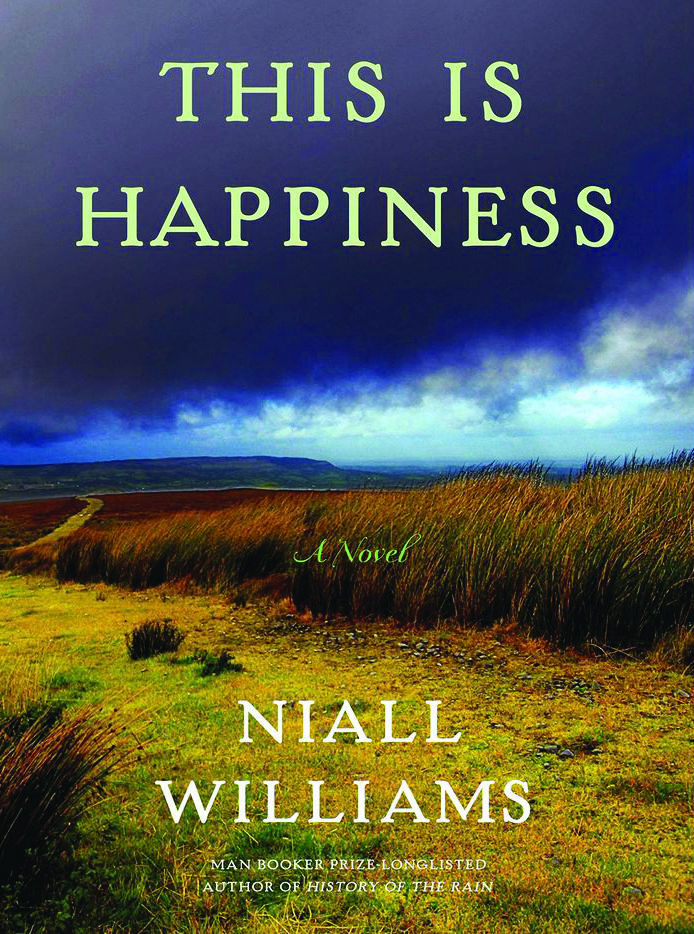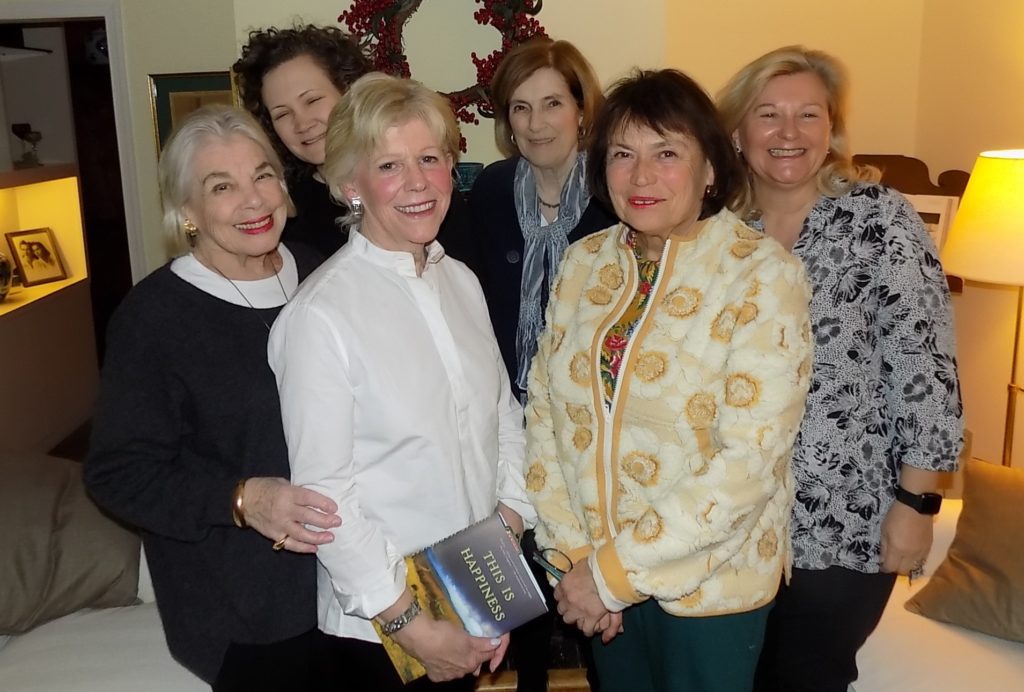The Club Savors ‘This Is Happiness’
By • February 26, 2020 0 2062

In sharing the experience of reading Niall Williams’s latest novel, “This Is Happiness,” a Georgetown book club also shared the pleasure of their friendship.“
I loved reading this book because, in our current political turmoil, I appreciated being taken back to the soft ringing of bells in Ireland and the escape to an eccentric little town as enchanting as Brigadoon,” said Sarah Gorman, the book club captain. Noting that the biggest problem the residents faced was the arrival of the electrical grid, she said she found the book a sheer delight — “despite all the rain.”
The group laughed recounting all of the book’s numerous raps and rhapsodies about rain. “It was either sleeting or sprinkling or pouring or pinging or soaking or misting,” said Carey Rivers, who mentioned that Williams’s previous novel, “History of Rain,” had been long-listed for the Man Booker Prize in 2014.
“Well, you probably couldn’t have a novel about Ireland without a little rain,” said Stephanie deSiboar, who had chosen the title and hosted the club’s monthly dinner. “I admit the rain must’ve been oppressive, but I became so involved with the story I felt like I was living in Faha [the fictional town in County Clare].” She said she finished reading the book in two days.
Others said they took longer because the narrative pace was slow — “so very, very slow,” said Laura Rivers, a paintings conservator with the J. Paul Getty Museum in Los Angeles, who had flown in to spend the holiday weekend with her mother. “So slow I still haven’t finished it.”
“The language was just too luxurious to rush,” said Kit Krents, recently retired administrative director of law firm Cleary Gottlieb. “I savored every sentence and can’t remember a story that has moved me as much. But, be cautioned,” he added, “you can’t pick up this book if you’re in a hurry and want a fast read.”
Susan Burrows, a law library professional, agreed. “The writing is so lush that I began reading paragraphs out loud to my husband. Drove him crazy, but the words are so rich, the language so luscious, that I just had to share them.”
“The characters in this book are not looking for change, which disturbs things and upsets their routines. They’re happy as they are,” said Gorman. “Hence the title.” The verdict that evening was a unanimous rave for “This Is Happiness,” the story of an old man looking back on his youth as an orphan. Having left the priesthood and gone to live with his grandparents in an Irish town that time had almost forgotten (until the arrival of electricity), he’s writing out his memories “because at the end we all go back to the beginning.”
His look backwards forms the loose plot of the book, which all agreed is carried by strong writing and vivid characterization; this is a book club that prizes fine writing.
“In fiction, most of our choices are Man Booker prizewinners or runners-up,” said deSiboar. “We don’t read sci-fi or mysteries or fantasies.”
“In nonfiction, we’ve tended recently to World War II authors like Erik Larson and Lynne Olson,” said Rivers, “but …
Before she finishes her sentence, the group begins listing their favorite books over the years. They collectively attempt to come up with their top five, using “A Gentleman in Moscow,” a 2016 novel by Amor Towles, as their gold standard.
Everyone agrees the list should include Barbara Kingsolver’s 1998 novel “The Poisonwood Bible,” Donna Tartt’s “The Goldfinch” of 2013 and Christine Sutherland’s 1984 historical work “The Princess of Siberia.” “That’s got to be in the top 100 books of all time,” said the captain.
But then the group diverges, offering a literate inventory that includes the 2015 novel “A Little Life” by Hanya Yanagihara, Viktor Frankl’s 1946 “Man’s Search for Meaning,” the 2011 novel “Sense of an Ending” by Julian Barnes and Wallace Stegner’s “Angle of Repose” and “Crossing to Safety,” from 1971 and 1987, respectively.
By 9 p.m., the captain announces the hardest part of the evening, which, she explains, is selecting the next book to read: “The choice usually goes to whoever shouts the loudest.”
Georgetown resident Kitty Kelley has written several number-one New York Times best-sellers, including “The Family: The Real Story Behind the Bush Dynasty.” Her most recent books include “Capturing Camelot: Stanley Tretick’s Iconic Images of the Kennedys” and “Let Freedom Ring: Stanley Tretick’s Iconic Images of the March on Washington.”

At the book club: Sarah Gorman, Stephanie deSiboar and Kit Krents (front row); Laura Rivers, Carey Rivers and Susan Burrows (back row). Photo by Robert Devaney

